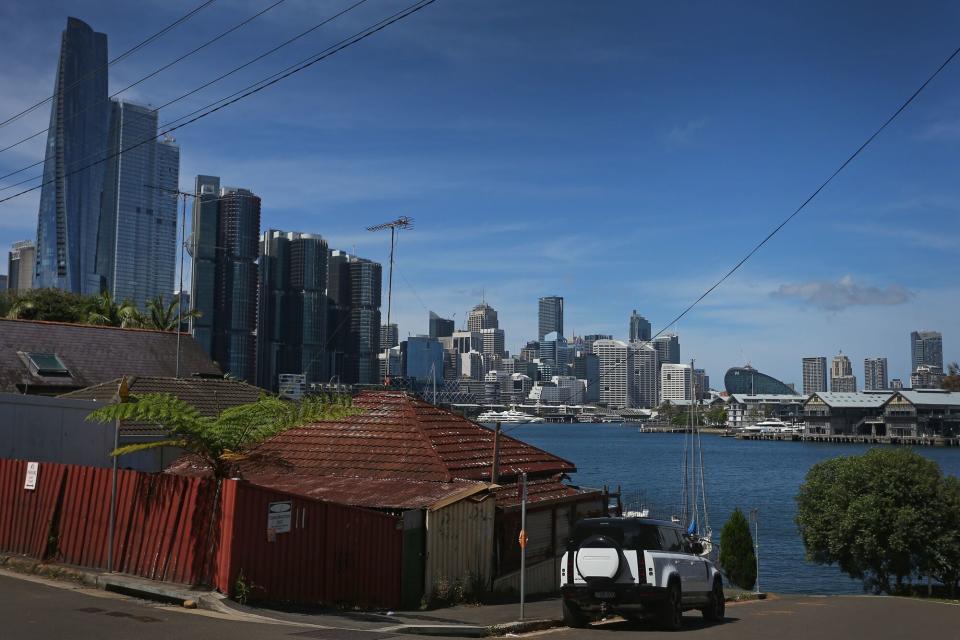Australia Business Confidence Jumps, Consumer Pessimism Deepens

(Bloomberg) -- Australia’s consumer pessimism deepened as households worried about the prospect for further interest-rate increases, while business confidence rose to the highest level since early 2023.
Most Read from Bloomberg
Microsoft Orders China Staff to Use iPhones for Work and Drop Android
Biden’s Biggest Donors Left Powerless to Sway Him to End Bid
Zyn Imitators Rush In as Online Sales Halt Worsens US Shortage
Rich Chinese Return to Hong Kong as Singapore Steps Up Scrutiny
Asia’s Richest Banker Gets Caught in Adani-Hindenburg Crossfire
A National Australia Bank Ltd. survey Tuesday showed business confidence jumped 6 points to 4 in June, driven by an increase in all industries but construction. Business conditions, which measure sales, employment and profitability, eased 2 points to 4, below their long-run average.
A separate household survey from Westpac Banking Corp. released an hour earlier showed consumer sentiment dropped 1.1% from June to 82.7 points in July, with pessimists heavily outweighing optimists. The index has held below 100 since March 2022.
“The July update shows that fears of persistent inflation and further interest-rate rises are again weighing more heavily on the consumer mood,” said Matthew Hassan, a senior economist at Westpac.
The two data sets show the divergence in sentiment for households and businesses in the face of still-elevated inflation and borrowing costs, suggesting corporate Australia is coping better, though the details in NAB’s survey pointed to weakness ahead.
Both labor and purchase costs growth eased while output price growth slowed too. Forward orders were flat and capex fell.
“Of note is the sharp decline in the employment index in the month,” said Gareth Pence, head of Australian economics at NAB. “While it’s only one month’s read, the employment index is now below its long-run average and may be signaling that the broader slowing in the economy is flowing through more strongly to labor demand.”
Overall, “our take on the survey is that it continues to signal another soft quarter” in the three months through June, Pence added.
Figures last month showed a partial gauge of consumer prices rose by more than expected for a third straight month in May, prompting money markets to price in odds of a rate hike this year.
The Reserve Bank of Australia next meets on Aug. 5-6, with some economists predicting it may tighten policy further to take the benchmark rate to 4.6% — a level not seen since October 2011. All eyes are on a second-quarter inflation report due July 31.
The Westpac index that tracks consumer expectations for variable mortgage rates over the next 12 months jumped 12.8%, marking the steepest monthly rise since the question was added to the survey at the start of 2022.
Other key data points:
Trading conditions and profitability fell 1 point each and employment slumped to 0, from 5 points, NAB’s survey showed
Forward orders at -7 points are now the weakest in retail, manufacturing, mining and wholesale in trend terms
Westpac’s report showed the family finances vs a year ago sub-index dropped 8.4%
The time to buy a major item sub-index lifted 3.1% to 82.1 but remains well below its long-run average of 124
The time to buy a dwelling index rose 4% to 75.7
(Adds details from NAB business survey)
Most Read from Bloomberg Businessweek
At SpaceX, Elon Musk’s Own Brand of Cancel Culture Is Thriving
How Stocks Became the Game That Record Numbers of Americans Are Playing
©2024 Bloomberg L.P.

 Yahoo Finance
Yahoo Finance 